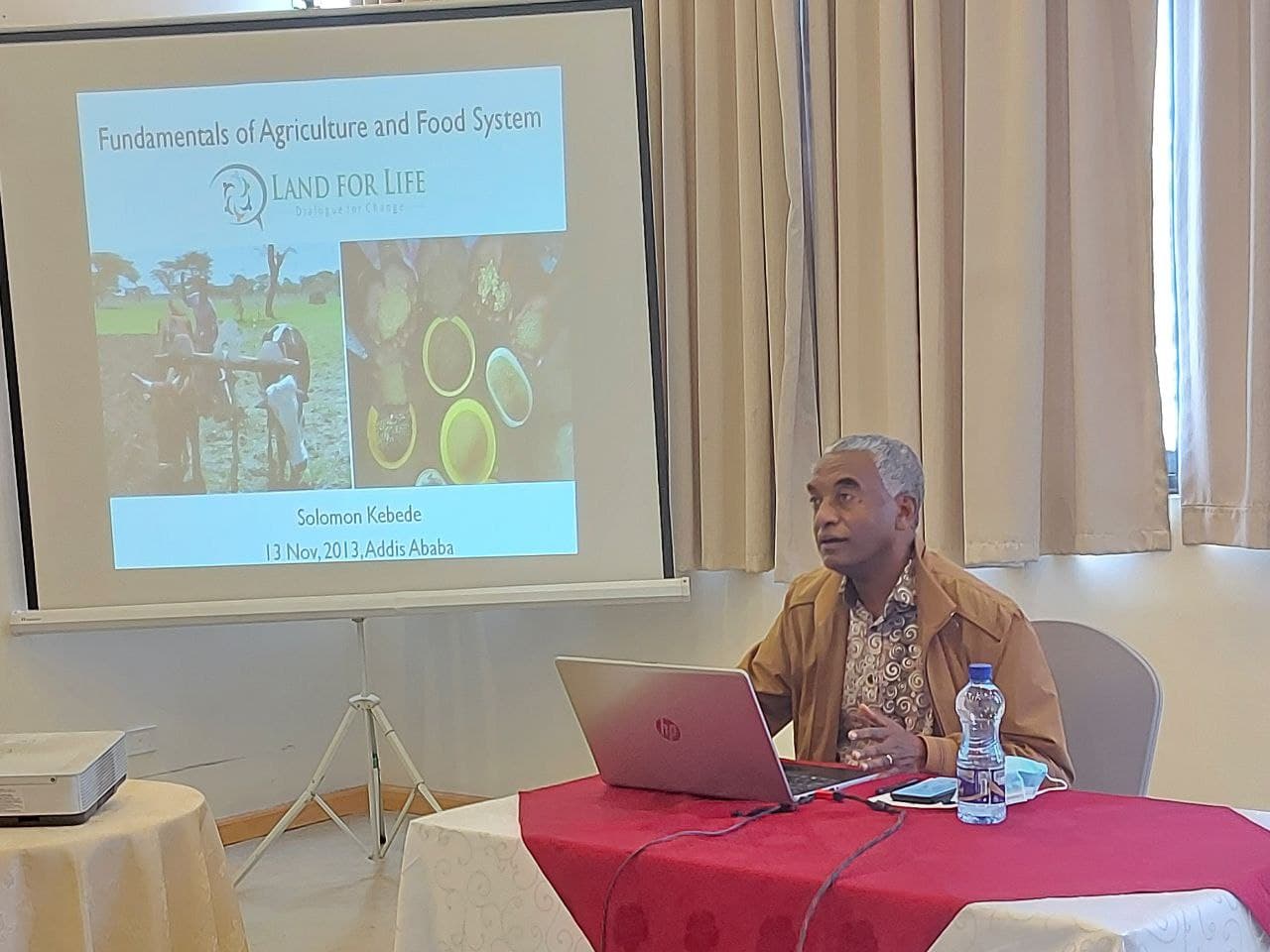Land for Life Ethiopia organized a half-day workshop on agroecology and the food system for the Land for Life members and other participants that came from Oromia and the Federal government bureau. The workshop was held on November 13.2021 at Azzeman Hotel where two papers are presented: Fundamentals of Agriculture and Food System by Solomon Kebede and Mainstreaming Agroecological Approach: Ethiopian Prospects by Dr. Regassa Feyssa.
Participants gained awareness on the global food system crisis, an overview of agroecology and food system, policy framework for promoting agroecological approaches, and others:
Smallholder farmers produce 50 to 75% of the world’s food but occupy 25-30 % of the land, 30% water, and 20% fossil fuels used in agriculture. The environmental cost of food production is $12 trillion per year, increasing to $16 trillion by 2050 (EU, 2020).
Between 2015 and 2020, 33 million people in Africa slipped into hunger almost all of whom lived in Africa south of the Sahara. Under and over-nutrition costs Africans between 3 and 16% of their GDP, while a child undernutrition an additional 1 to 11 percent of the total public health budget. Industrial agriculture has different negative outcomes on productivity, environment, socio-economic, nutrition, and health.
The goal of agroecology includes: – The preservation of natural resources and biodiversity; the decrease of harmful effects: water pollution, unhealthy diet, production of greenhouse gases; the generation of secure, sustainable, and local income; the increase in the resilience of farmers; the enhancement of the value of human being and social dynamics.
Food system encompasses the entire range of actors and their interlinked value-adding activities (involved in the production, aggregation, processing, distribution, consumption, and disposal of food wastes) that originate from agriculture, forestry or fisheries, and food industries, and the broader economic, societal and natural environments in which they are embedded(Building on a definition by FAO (2018)).

Sustainable food system is a food system that delivers food security and nutrition for all in such a way that the economic, social, and environmental bases to generate food security and nutrition for future generations are not compromised.
Agroecological approach is based on the multifunctional dimensions of agriculture that cover environmental, cultural, socioeconomic, and political dimensions. Ethiopia’s agriculture is based on its agro-ecological wealth that is comprised of: – biological and physical resources; associated cultural and socio-economic values; and resource management practices and knowledge.
Civil Society Organizations can take the lead in promoting practical and positive action in agro-ecosystem management and agro-biodiversity conservation. They can: – promote public awareness and understanding, act as Watch Dogs, keep issues on the Agenda, and initiate practical agro-ecosystem development strategy and action at local level, national and international level.
Key possible intervention points: –
- Promotion of agroecosystem management practices including rehabilitation of farm environments and landscapes.
- Development and promotion of strategies for community-level conservation and development of agro-biodiversity.
- Development and promotion of mechanisms for seed and food security, for climate change adaptation and mitigation.
- Development and promotion of mechanisms for market and non-market incentives for products of agro-ecological practices.
Many insights came out from the discussions that will strengthen advocacy work.


